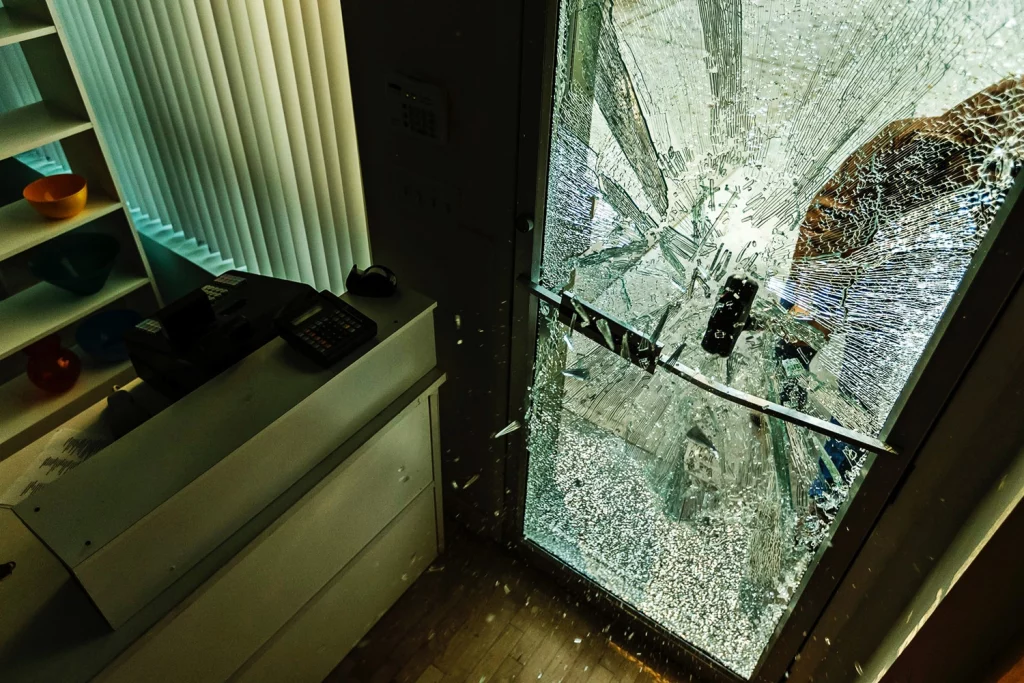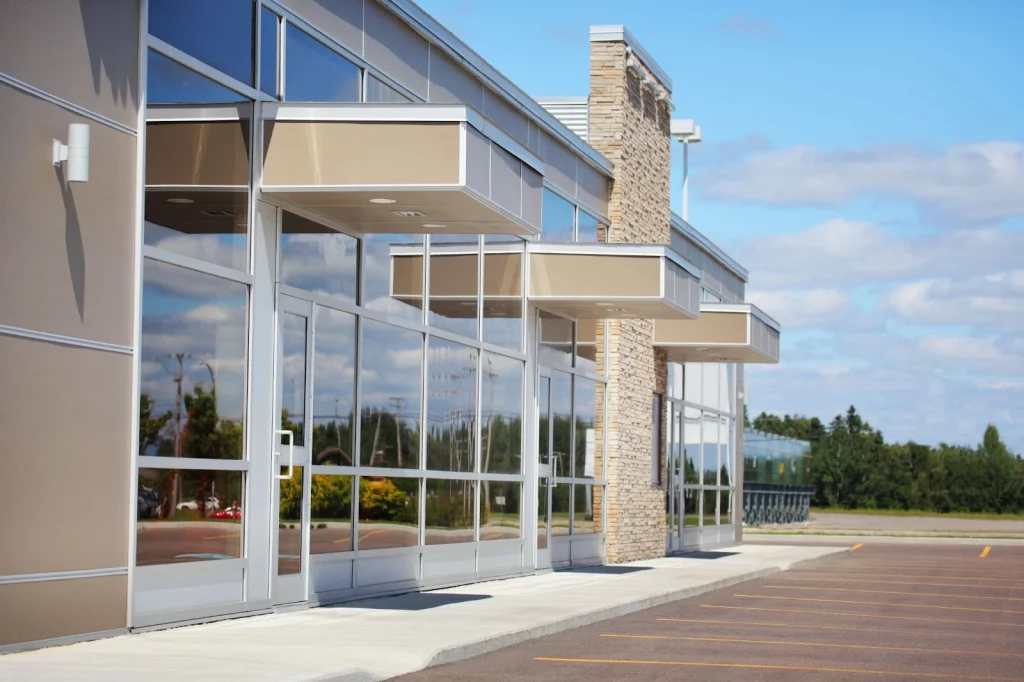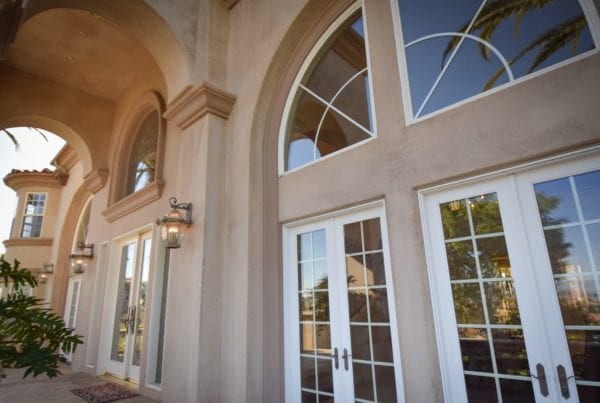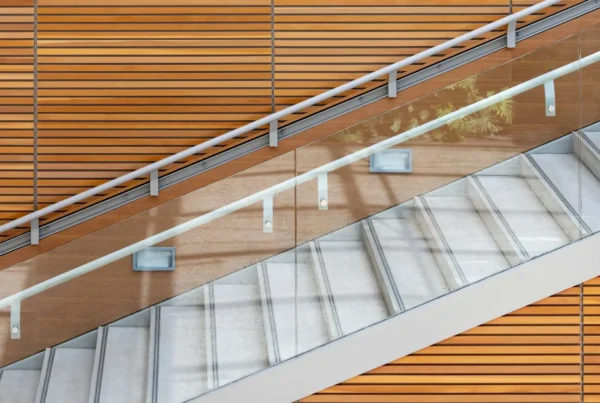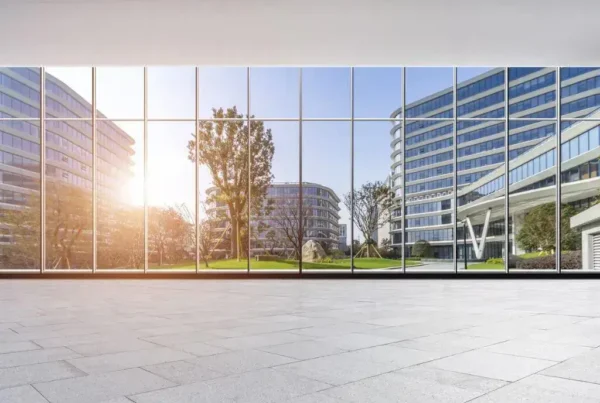If you’re looking for ways to improve your commercial glass security and protect your property against forced entry and burglary, one solution you’ve probably come across is glass break alarms, also known as glass break detectors or sensors.
Although glass break sensors don’t actually prevent forced entry, they can be used alongside other components of a comprehensive commercial security system to help deter would-be intruders from targeting your property.
What Are Glass Break Alarms?
Glass break alarms are special sensors that attach directly to a glass surface, or on a surface nearby, to detect when the glass is broken and alert property owners to a potential forced entry attempt.
There are a few main types of glass break detectors:
- Shock glass break sensors
- Acoustic glass break alarms
- Dual glass break detectors
Shock glass break sensors
Shock glass break alarms are fixed directly to the surface of the glass and sense vibrations to detect when the glass breaks. They do this through an electrical wire that runs from the glass surface to the sensor.
Acoustic glass break alarms
Acoustic glass break sensors listen for the sound of broken glass, rather than feeling for vibrations.
These types of glass break detectors can be attached anywhere near one or more glass surfaces, so one alarm can work for several windows or glass doors. However, acoustic glass break alarms do have an optimal range that they work within.
Dual glass break detectors
As you may have already guessed, dual glass break alarms detect when glass breaks by both listening for sound and feeling for vibrations.
These dual sensors must be attached directly to the surface of the glass you want to protect in order to work, and they have to detect both the sound and shock of breaking glass to go off.
Pros and Cons of Glass Break Alarms
As with most security technology, there are pros and cons to using glass break detectors to protect your commercial property from forced entry and burglary.
Pros of glass break sensors:
- Can leave them armed at all times (unlike motion sensor alarms)
- Visible glass break detectors can deter would-be intruders
- Acoustic glass break alarms work well for small rooms with many windows
- Some glass break sensors automatically notify the authorities
- Can integrate with other smart technology (e.g., send notifications to your smartphone)
Cons of glass break alarms:
- Different loud sounds and/or vibrations can trigger false alarms
- Don’t do anything to prevent glass from breaking
- Professional thieves may know how to avoid triggering glass break sensors
- Glass break shock sensors can get expensive if you get one for every glass surface
- Not necessary or effective if you opt for impact-resistant security glass/glazing
How Effective Are Glass Break Detectors?
Glass break sensors are effective at alerting you when a potential break in is underway on your property, but they shouldn’t be the only thing you rely on to deter and prevent forced entry and burglary.
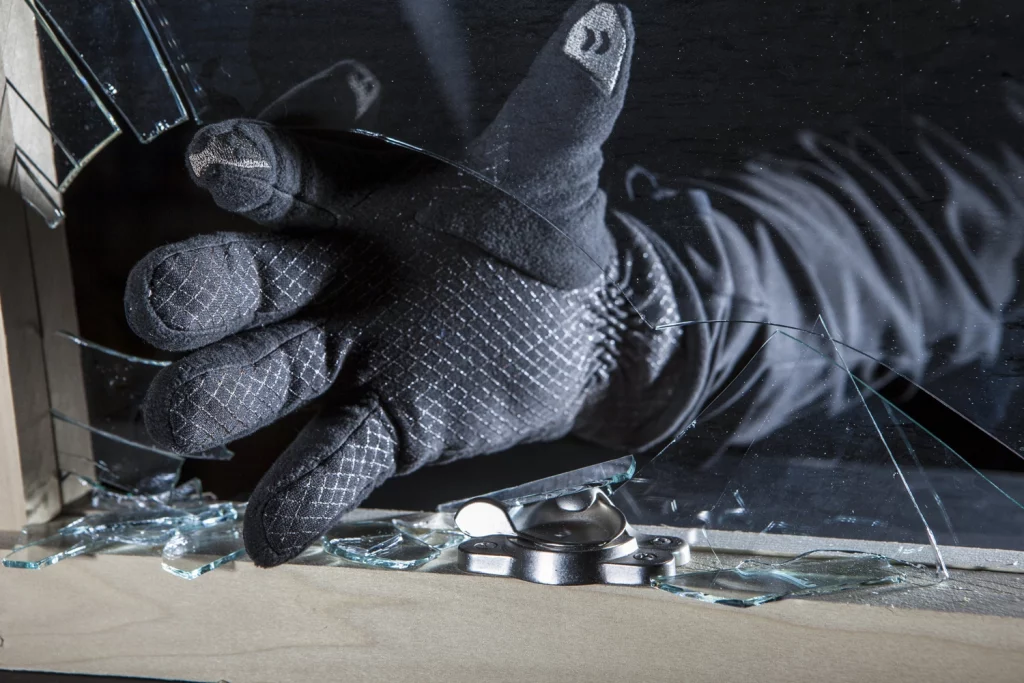
If it’s the middle of the night and you get a broken glass alert, chances are the thieves are already inside your property and have at least a few minutes to get away with stolen goods.
This is why it’s so important to ensure you’re using various types of commercial security technology solutions to protect your business.
Crucial components of a commercial security system:
- Access control
- Intrusion alarms (a mix of motion sensing, door sensor, and glass break alarms is best)
- Video surveillance
- Security lighting
- Forced entry-resistant security glazing
Why You Should Be Using Forced Entry-Resistant Security Glazing (Instead of Glass Break Alarms)
Things like alarms, video surveillance systems, and motion sensing security lighting are all great additions to your security system that can help deter would-be intruders, but there’s one thing they simply don’t do: physically prevent forced entry.
This is why we highly recommend protecting your most vulnerable glass doors and windows with virtually unbreakable polycarbonate security glazing, such as ArmorPlast® AP25 from Riot Glass, LLC.
This forced entry resistant-polycarbonate security glazing is so impact resistant that even the most prolonged attacks using common burglary tools, like pry bars, hammers, and other heavy hand tools, just bounce right off.
The polycarbonate glazing shields can be retrofitted into or onto almost any existing window or door framing system, creating a virtually unbreakable barrier in front of the existing glass. This all-in-one solution protects the glass behind from breaking in the majority of cases.
And, even if the polycarbonate is penetrated and the glass behind does break, the security glazing remains a barrier to forced entry that prevents an attacker from passing any part of their body through the door or window.
When you protect your vulnerable storefront glass with polycarbonate glazing, you don’t need to worry about installing glass break alarms on those windows — the intruders won’t be able to gain access.
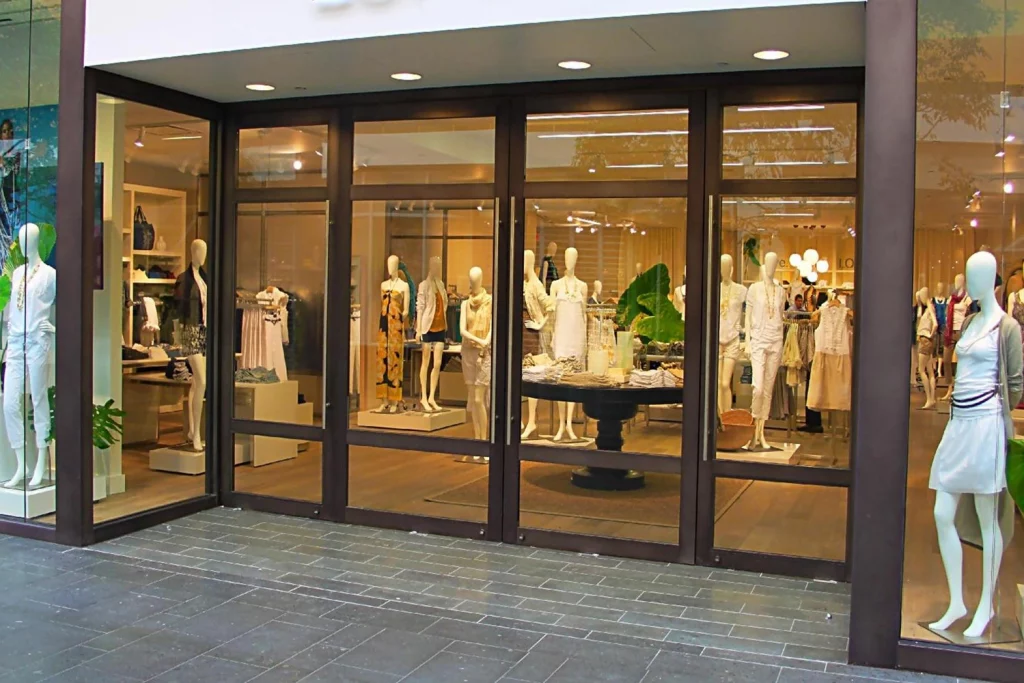
You can still use glass break sensors on hard-to-reach glass in areas where forced entry attempts are less likely, such as on a rooftop, but you don’t need to bother installing them on every glass surface or in every room if you have polycarbonate glazing shields in place.
Benefits of polycarbonate security glazing:
- Looks and feels like traditional storefront glass
- Doesn’t inhibit views, block natural light, or prevent window shopping
- Maintains the curb appeal of your business
- Virtually unbreakable (protects glass behind from impacts)
- Prevents even the most determined would-be intruders from gaining entry
- Protects against a full range of security threats:
- Forced entry and burglary
- Smash-and-grab theft
- Vandalism
- Rioting and looting
- Storm damage
- Blast damage
- Active threats
- Reduces the need for glass break sensors
- Is a very cost-effective solution
Improve Your Commercial Glass Security with Campbell Glass and Films
Campbell is an authorized dealer and installer of all Riot Glass® security glass products, including ArmorPlast® AP25 polycarbonate security glazing.
If you’re in the market for solutions to harden your commercial property’s security against forced entry, burglary, and other threats, contact our knowledgeable team today for a free consultation.

